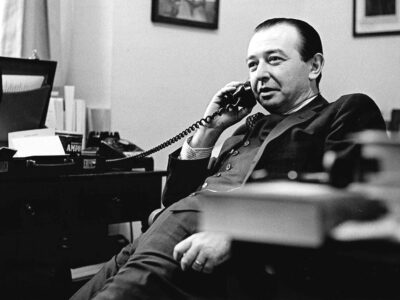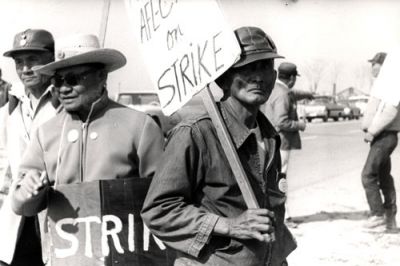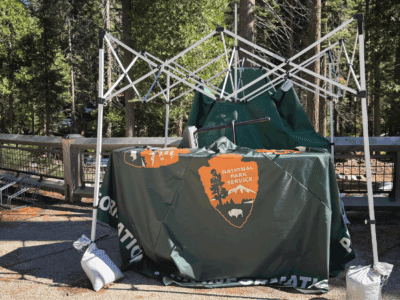How “Passive Virtues” Destroy the Constitution
Judicial restraint has become a license for dictatorship.

Never has the adage that A Picture Is Worth A Thousand Words been more appropriate. Donald Trump has destroyed much of the federal government and much of the Constitution, so now he is destroying the White House – in this case, to build a horrific 90,000 square foot ballroom paid for by “private contributors,” who will expect favors in response.
But it also points to the failure of one of the most celebrated mid-century legal theories – Alexander Bickel’s celebration of the “passive virtues.”
Bickel’s central idea was expressed in his seminal book, The Least Dangerous Branch: the Supreme Court at the Bar of Politics. He argued by employing techniques such as standing, ripeness, mootness, and other jurisdictional and procedural barriers, the Supreme Court could maintain both its authority and also preserve democracy by not interfering with the decisions of elected officials. This would help solve what called Bickel called the “counter-majoritarian difficulty” – i.e. that the Supreme Court would be blocking the decisions of a democratic polity.

Now, let’s think about the destruction of the White House. Can Trump do this unilaterally? Unsurprisingly, he says he can. The National Capitol Planning Commission has authority to approve new construction, but does that include demolition? Trump says no, previous Commission members say yes.
What’s the answer? We will never know, because of Bickel’s precious passive virtues: no one has standing to sue. The Commission itself is stacked with Trump’s appointees, so it won’t sue anyway, but the Court’s relentless restrictions on who can challenge governmental action (unless they are Republicans challenging a Democratic President, in which case it will ignore doctrine) means that a President who does not care about the law can essentially trash it.
And this is the case with so much of America’s historic resources. Just today, White House Press Secretary and sorority rush chair Karoline Leavitt said that Trump can tear down the Jefferson Memorial if he wishes. And that is true because who can sue to stop him?
Well, maybe the political process can take care of it? Not if Bickel and his progeny would have their way. Bickel was a huge fan of the “political question doctrine,” which of course came from nowhere and was invented by the Court. But this Court has used it to refuse to enforce the Voting Rights Act and indeed to undermine that Act completely. Republicans are currently trying to gerrymander their way out of democratic accountability, and they are aided by the very doctrine that
Well, okay: what if the President just breaks a specific law? That doesn’t work either, at least not if the government engages in lawbreaking on a massive scale, because the Court just used yet another Bickelian jurisdictional defense to destroy nationwide injunctions.
All this adds up to a pretty obvious conclusion: the passive virtues actually undermine democracy because they allow a lawless President and a lawless party to break the law and block accountability. The entire justification for the passive virtues is in fact justifies getting rid of them.
Or, as the great legal theorist Geddy Lee once noted:
You can choose a ready guide
In some celestial voice
If you choose not to decide
You still have made a choice
Yeah, I know: it’s not a very good song. And even it is better than Bickel.







It is certainly interesting how these passive barriers to judicial action tend to melt away to allow challenges to Democratic presidents or environmental protections (Bennett v. Spear anyone?). But I”d take issue with one assertion — I think Freewill is a pretty good song. You can’t beat Neil Peart on drums!
It has been quite a while since I listened to Free Will, thanks. Seems to me Mr. T has never been held accountable for much, if anything; he seems to have always gotten a pass. One might think the law of averages would eventually kick in.